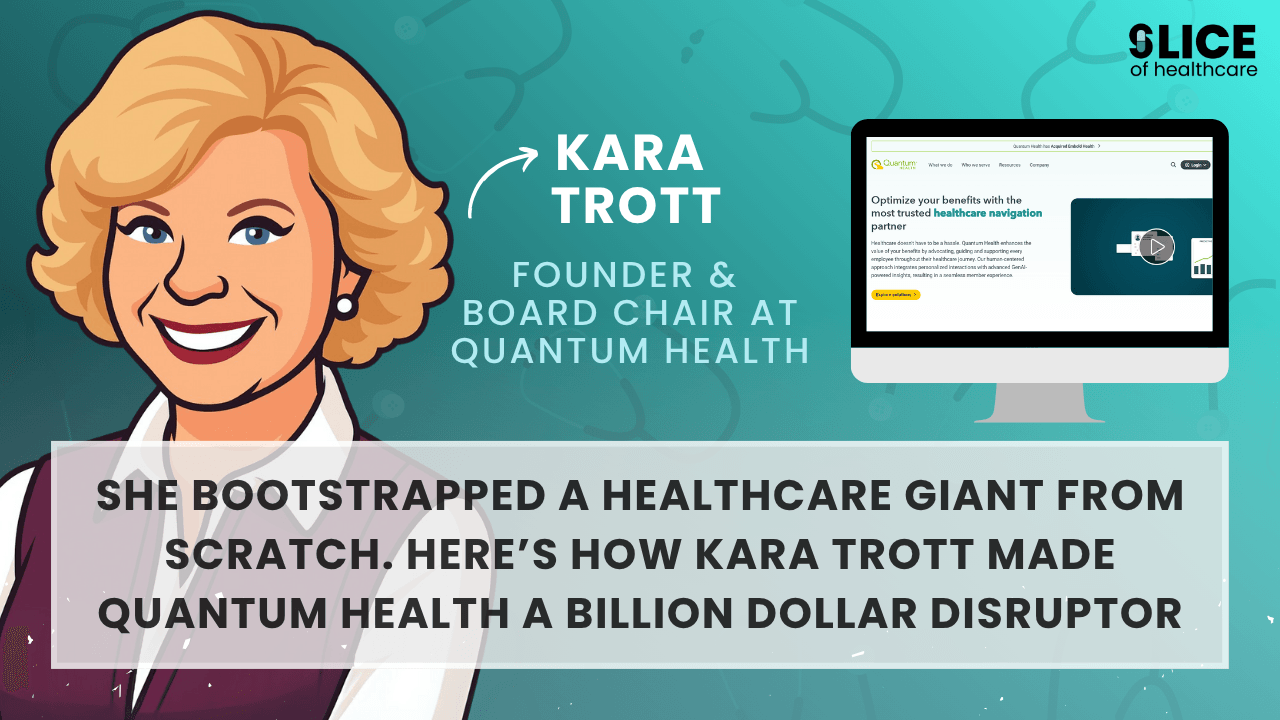
She Bootstrapped a Healthcare Giant from Scratch. Here’s How Kara Trott Made Quantum Health a Billion Dollar Disruptor
“It’s bewildering, it’s terrifying… like Dorothy in Oz.” That’s how Kara Trott describes the average person’s healthcare journey. And she should know. For 25 years, she’s been building a company that’s quietly rewritten the script on how Americans experience healthcare.
Quantum Health, the company she founded in 1999, didn’t start as a Silicon Valley startup or a spinout from a health system. It was born from a lawyer turned consumer researcher’s growing obsession with one question: Why does healthcare feel so broken for the person going through it?
Making Healthcare Make Sense
At its core, Quantum Health helps employees navigate the tangled web of healthcare. Employers hire them to guide their people from the moment they’re diagnosed, before a claim even hits the system, all the way through to recovery.
Think of it like a GPS for your healthcare experience, with a real human at the wheel. Quantum Health coordinates with doctors, insurers, and specialists, translating the chaos into a plan people can actually follow. The result? Lower costs, better outcomes, and what Trott calls “feeling loved and cared for” in a system that too often feels cold and bureaucratic.
The Accidental Healthcare Founder
Trott didn’t come from healthcare. She was a transactional attorney who had also spent time in consumer behavior consulting, helping brands map shopping journeys and design better customer experiences.
When she dipped a toe into healthcare during the Clinton era reform boom, she was shocked. “No one sees [patients] as the person, as the consumer,” she recalls. “Doctors see them as patients. Insurers see them as claimants. But no one looks at the journey from their point of view”.
That outsider’s lens turned out to be her superpower. Trott launched a two year study tracking 3,200 people through real healthcare experiences, not just the clinical parts, but the emotional, logistical, and financial hurdles too. The patterns she uncovered became the blueprint for Quantum Health.
Built Different and It Shows
While the industry waited for claims data to signal a health event, Trott built a model that gets ahead of the curve. Her team figured out how to intercept people at the moment they book a doctor’s appointment, when they’re still scared, confused, and not yet buried in paperwork. “You have to reach them right then,” she says. “That’s when they need help most”.
And that help doesn’t come from an app. It comes from what Trott calls “healthcare warriors,” real people trained to blend clinical knowledge with benefits navigation and human empathy. “We are a very touchy feely kind of emotional company,” she says, “but we are also very data driven. We measure everything”.
The results? Clients often see a 5 to 6 percent drop in healthcare costs in year one. Some even go negative. Net Promoter Scores hover around 70, world class by any standard.
Expert Insights
Share Your Expert Insights
Have relevant experience or professional perspective? Add your thoughtful insights to this article.


